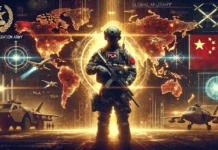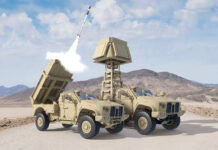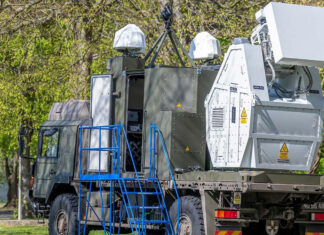INSS Insight – Asculai, Ephraim: The Istanbul-Baghdad-Moscow talks on Iran’s nuclear program are over. As expected, they did not achieve anything of significance, besides deciding on further, lower level talks. Indeed, the P5+1 and the Iranian delegations shared one objective: they did not want the process to end, thereby necessitating a decision on different tracks. The Iranians are successfully playing for time, as they have done for so many years, and the members of the P5+1 group are also trying to delay any inconvenient decisions, each group member for its own reasons. Most noticeably, the US delegation would like to postpone any major decision until after the November 2012 presidential elections. For their part, the Iranians need time to advance their nuclear program and produce as much enriched uranium as possible. Although according to many reports the sanctions are hurting Iran, they are still not hurting Iran badly enough, and the Iranians are able to bear them.
The ultimate aims of both sides are, of course, diametrically opposite. The Iranians want to retain the capability to enrich uranium to military-grade levels and to gain the ability to produce several nuclear weapons in short order, should the Islamic Republic’s authorities so decide. The Iranian strategy is very simple: they want the world to recognize the legitimacy of the Iranian uranium enrichment program. Even under limited conditions, such recognition would enable Iran to retain its technical capabilities, to perfect the enrichment process, and to leave them a potential for a breakout (defined as the start of the process to produce military-grade enriched uranium), whenever they decide to do so. In addition, the Iranians could well construct concealed facilities and secretly produce enriched uranium to whatever levels they choose to achieve.
The P5+1 want to prevent this possibility, but their remaining options are few. It is nearly impossible to envision the Security Council taking any further action against Iran, because Russia and China would likely vote against it. The first and most probable option for the West (the P5+1 minus Russia and China) is to impose the July sanctions on oil and hope for the best. The next option is to increase the sanctions considerably and wait for the Iranians to blink. The third option is military action against Iran’s nuclear facilities.
What would the Iranians do? Although the present sanctions have hurt Iran considerably, there are those who think that Iran can shoulder them indefinitely and will therefore continue with its present tactics of preventing a showdown while enriching uranium. Should the sanctions be increased considerably, Iran could be willing to forgo the enrichment to 20 percent. This would be a political victory for the West, more than a practical victory, since Iran could still break out and produce nuclear weapons within a relatively short time. At this time, it is impossible to see Iran surrendering all enrichment activities. Too much is at stake internally, and any such action would be viewed by the population as defeat and perhaps cause a regime upheaval. Another Iranian option to break the impasse of sanctions vs. enrichment is to move ahead and take actions towards the production of nuclear weapons. These actions would include, inter alia, suspending unilaterally the IAEA safeguards activities in Iran, withdrawing from the NPT, and carrying out a nuclear underground test (contrary to its CTBT obligations). Any of these actions could materialize either because of Iran’s frustrations or its wounded national pride, or because Iran would feel cocky, having, in its own assessment, won all previous rounds. Iran could also be encouraged by the North Korean precedent, where nothing of major consequence happened to it following its first underground nuclear test. An Iranian underground test would perhaps be seen by the world as a casus belli condoning military action, but even this is uncertain.
How Israel would view the developments in Iran is a different matter. A nuclear Iran is certainly seen in Israel as an unacceptable threat. While the US views an Iranian breakout as a red line, mandating strong action, Israel views the potential to produce nuclear weapons in a very short time as its red line. Should Iran withdraw from the NPT or even from its safeguards obligations, there are those who would take this as a casus belli. This red line is not so well defined, and even a significant amount of further enrichment could be viewed as a trigger for military action. It is therefore very important to go back and rethink the whole diplomatic process if military action is to be avoided.
Strangely enough, the Iranians have a case in their derision of the P5+1 offer, in return for stopping the 20 percent enrichment, closing down Fordow, and sending the enriched uranium abroad. What the West offered, (airplane parts, etc.) was termed by the Iranians as “peanuts” and “chocolates” in return for “diamonds.” What should have been offered is the suspension of the forthcoming July oil sanctions. This should be in effect for, say, six months, after which these sanctions would automatically return if no further agreement was reached. None of the existing sanctions would be suspended, and the pressure on Iran would be as great as it is now.
In the next stage of negotiations, should the negotiators agree on this first step, the Security Council demands of Iran concerning the suspension of uranium enrichment and plutonium production activities must be met. The final step must be dismantling and stopping completely all activities related to fissile material production. Before the Moscow talks began, President Ahmadinejad said that Iran would be willing to forgo enrichment to 20 percent, in return for fuel for the Tehran research reactor. It is certain that Iran could obtain the same deal for the supply, most probably from Russia, of the 3.5 percent fuel for its Bushehr nuclear power reactor. It could then abandon the need for indigenous uranium enrichment. Although at this stage a very far-fetched dream, this would be the only way to defuse a very dangerous situation that could cause much regional and universal damage if allowed to develop further.
















